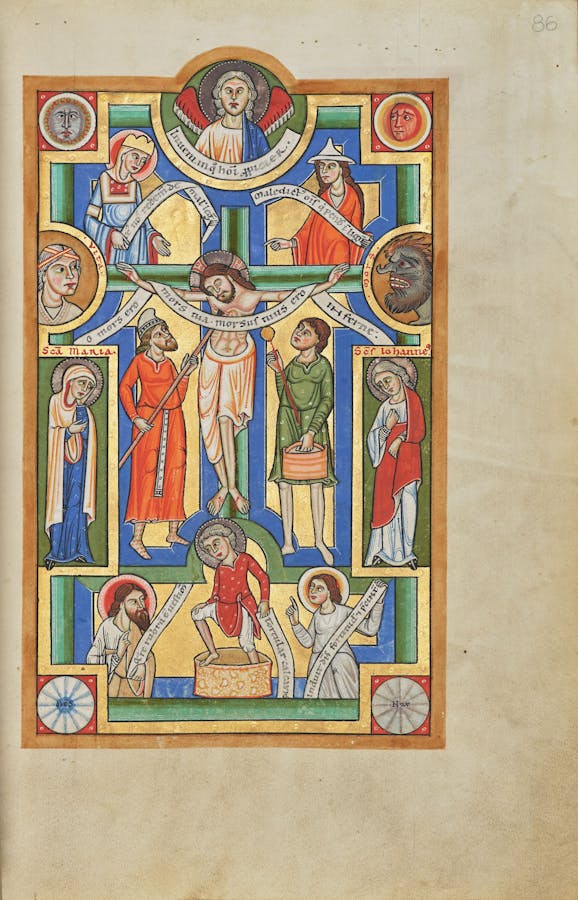Human beings are the only creatures who build cathedrals, synagogues, and other sacred spaces. Indeed, some researchers today argue that our brains are wired to express devotion.
The Bible calls on people to worship God individually and communally, which typically involves prayer, thanksgiving, and songs of praise. For some theologians, the ability to both know and love God sets us apart from other animals.
Can science offer any insights into worship? What can a better understanding of the science of worship tell us about ourselves?
“You have made us for yourself, O Lord, and our hearts are restless until they rest in You.”
Augustine of Hippo, Confessions, ca. late 4th century

Life and Death, symbolized as a woman and a demon, respectively, flank the cross in this illumination. The scroll hanging from Jesus's arms reads, "O death, I will be your death, O Hell, I will be your bite."
Unknown, illuminator
The Crucifixion, probably 1170s
Tempera colors, gold leaf, silver leaf, and ink, leaf: 28.2 × 18.9 cm (11 1/8 × 7 7/16 in.)
The J. Paul Getty Museum, Los Angeles, Ms. 64, fol. 86, 97.MG.21.86
Digital image courtesy of Getty’s Open Content Program.
What happens after we die?
The idea that humans live on after death has also been closely linked to the meaning of imago Dei. The Bible, especially the New Testament, teaches that human life does not end with physical death. It continues into eternity.
People who have had so-called “near-death experiences” claim to have seen glimpses of the afterlife. This topic is controversial and raises questions that science may never be able to answer. Yet, the promise of eternal life has offered comfort for billions around the world, past and present.
“Jesus said to her, ‘I am the resurrection and the life. Whoever believes in me, though he die, yet shall he live.’”
John 11:25










